News
-
 Environment
EnvironmentMicroplastics lodge in crab gills and guts
Crabs can absorb microplastic particles through their gills and by eating polluted mussels.
By Nsikan Akpan -
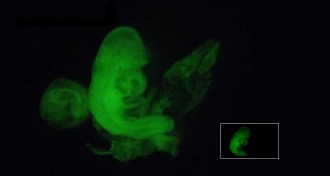 Life
LifeDramatic retraction adds to questions about stem cell research
Researchers who reported an easy method for making stem cells admit mistakes mar their work, and have retracted their papers from Nature.
-
 Astronomy
AstronomyRare planet circles just one of a pair of stars
A newly discovered exoplanet orbits one star in a binary pair and shows that planets can form even with a second sun nearby.
-
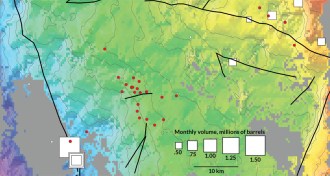 Earth
EarthOklahoma earthquakes triggered by wastewater injection
Dumping wastewater from the oil and gas industry into disposal wells may have set off swarm of earthquakes in Oklahoma.
By Meghan Rosen -
 Astronomy
AstronomyExoplanets once trumpeted as life-friendly may not exist
Two exoplanets considered among the most promising for hosting life may not exist, a new study suggests.
By Andrew Grant -
 Psychology
PsychologyPeople will take pain over being left alone with their thoughts
Evidence suggests that people dislike solitary thought so much that some prefer electric shocks.
By Bruce Bower -
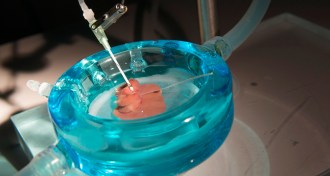 Health & Medicine
Health & MedicineSupercooling makes livers for transplants last longer
Supercooling a rat liver for transplant greatly increased an organ’s survival time outside the body, potentially opening the door for global allocation of human organs.
By Nsikan Akpan -
 Neuroscience
NeuroscienceAutism may carry a benefit: a buffer against Alzheimer’s
Brain plasticity of people with autism may protect them from Alzheimer’s disease, scientists propose.
-
 Life
LifeTibetans live high life thanks to extinct human relatives
DNA shared by modern-day Tibetans and extinct Denisovans suggests people picked up helpful genes through interbreeding with other hominids.
-
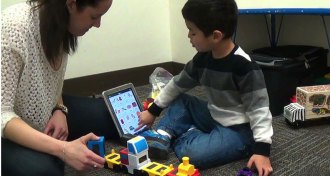 Psychology
PsychologyTablet devices help kids with autism speak up
Talking iPads may help break the near-silence of some kids with autism.
By Bruce Bower -
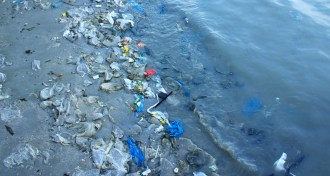 Environment
EnvironmentPlastic goes missing at sea
A survey of the world’s oceans finds far less polymer trash than expected, and researchers don’t know where the rest of the plastic is.
By Sam Lemonick -
 Life
LifeNear reefs, microbial mix dictated by coral and algae
A reef’s dominant organism, coral or algae, may determine what kind of bacteria live there.